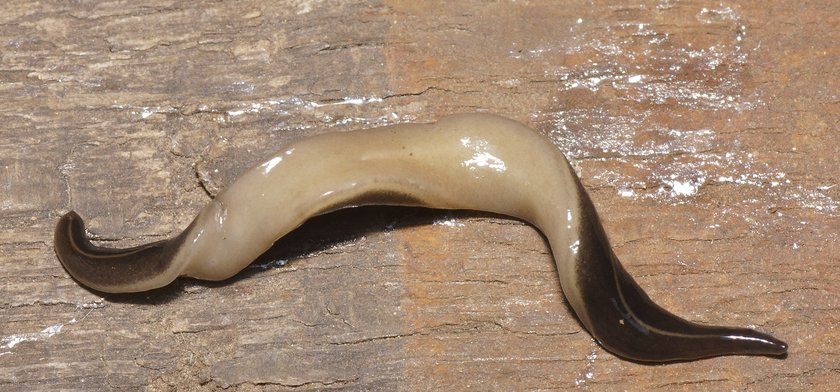
MIAMI, Fla. — Move over kudzu, one of the world’s most invasive species has shown up on American shores and Alabama could be its next destination. After sightings in Florida, scientists are concerned that the New Guinea Flatworm could spread to the rest of the United States.
The Platydemus manokwari, commonly known as the flatworm, grows to about two inches long, and has a greenish backside with a light underbelly— an underbelly that contains a mouth right in the middle.
Like other invasive species, the worm, when in a habitat with no natural predators, wreaks ecological destruction. While not a direct threat to humans, the New Guinean species is known to feast on local snails wherever it lands, even climbing up trees to get to them.
“The discovery of this species in mainland America should be considered very bad news for biodiversity,” Professor Jean-Lou Justine, from the Institute of Systematics, Evolution, Biodiversity, who led the study finding the worms, told IFLScience. “It is a predator of land snails and of many other soil invertebrates. It can endanger existing populations of rare and threatened endemic snails.”
A 2014 outbreak in France has caused European scientists to fear for the future of many indigenous species. “All snails in Europe could be wiped out,” Justine told The Guardian in 2014.
Snails and earthworms, which are the flatworm’s primary prey in invaded territories, serve vital roles in the ecosystem. Earthworms are critical in agriculture, a major sector of Alabama’s economy, and snails are a vital source of food for many animals higher up the food chain.
Although it has only been seen in Florida, researchers have determined that New Guinea flatworms have devastated every ecosystem they have invaded. Typically landing on small islands due to their lack of geographical mobility, the species has now arrived on the large land masses of Europe and the United States and there’s no precedent to help scientists determine how quickly they will spread.
Don’t miss out! Subscribe today to have Alabama’s leading headlines delivered to your inbox.